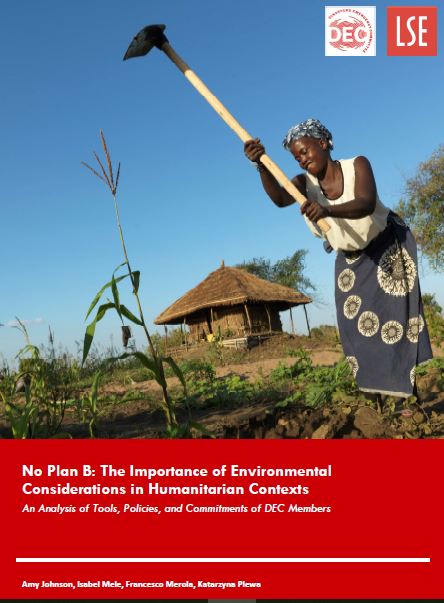Humanitarians understand the importance and urgency of the environmental agenda, and they
have a clear desire to incorporate environmental considerations into their work. However, their endeavours
are hindered by multiple challenges. This study, conducted for the Disasters Emergency Committee (DEC) by a consultancy team from the London School of Economics and Political Science (LSE), examines these challenges, as well as key opportunities for change and development.
The report explores the lack of prioritization of environmental considerations in humanitarian responses. It shows how most DEC members do not prioritize environmental considerations at any level from their organisational structure down to programme design and implementation, resulting in a lack of funding, resources,
and expertise. This creates a self-perpetuating cycle of de-prioritization and under-resourcing of environmental considerations.
Moreover, the report highlights the crucial role of donors in prioritizing environmental considerations and mainstreaming them through their own work and by releasing long-term and flexible funding. Such a conduct, in fact, could enable organisations to adapt to the changing nature of the humanitarian context,incorporate environment issues in the first phases of a response and consider environmental issuesas they arise.
Download the full report here.